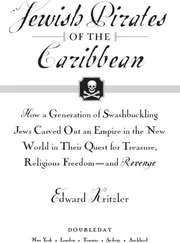“I’m running to give you an account of my earnings before I married you!”
“Ah, that’s what’s the matter with you, Stempenyu. You cannot bear to be told the exact truth. And, you have grievances against those who beat their heads against the wall for you — who toil, and sweat, and crawl on all fours, so to speak, and who deny themselves a crust of bread, and lead a life of continuous hardship for your sake. For him? Perhaps you can tell me what good deeds he has done to deserve all this? He will probably but a golden tombstone over my head… Woe is me!”
“What have I done to you? Who is touching you?”
“What more can you do to me? You have done enough. You have darkened my life for me. You came upon a young girl, a child, and with a false look of your eyes you betrayed her. You promised me everything — golden mountains. You made yourself out a liar from head to foot. How well off I should have been if I had never known you. I should have sought out someone who would have understood me, and cared for me. But, I would not have been Stempenyu’s wife! What a piece of good fortune I have come upon!”
“Well, perhaps you are sorry that you married me? Well, there is a rabbi in Tasapevka, and a river. And, one can write out a divorce.”
“Ah, ah, ah! So that is what you are driving at! You squeezed it out at last. You think that I do not know you were looking in that direction? You want to rid yourself of me? I know Stempenyu, I know. You cannot fool me. Am I standing in your light, Stempenyu? But, have I deserved this of you? I ask you to tell me, as a favour, how I have deserved this from you. Let me also know my offence.”
“This!” replied Stempenyu, waving his hand mystically. He went into his room, locked the door, and took down his fiddle from the wall. The fiddle was now his only consolation, his only friend in the wide world. The fiddle was the only medium through which he could attain to forgetfulness of his bitter disappointment. It brought back to his mind the days of his childhood, and youth, and early manhood. It reminded him, too, of the liberty he had lost for ever and ever. Many different persons came up before him, like ghosts, as he played. With the music that he drew from his fiddle he was charmed into vain imaginings. Many pictures of the might-have-been stood before him as he played, and dozens of pictures of the days that were gone past recalling. He was like a man standing before an enormous panorama. Each picture came up in its turn, stayed a moment — and was gone, to give place to another picture equally pleasurable, and equally painful.
But, there was one picture which invariably stood out more strongly than any of the others — one which he could never hope to forget, much as he might have wished it. That one picture was of Rochalle, with her shining face and blue eyes and long lashes and snow-white neck, and the sweet, gentle smile for which he was ready to lay down everything — everything.
Stempenyu went on playing and playing. He played for a long, long time, so that Rochalle’s image might remain beside him, conjured up by the music. He wished that it would stay with him and not vanish, as all the other pictures vanished in their turn. He was so full of yearning towards her that it was some comfort to him if she was with him even in imagination. The very memory of her was dear to him — very dear.
At that period, Stempenyu played as he never played before, and as he never played again. He reached the zenith of his power in those unhappy weeks and months immediately following the departure of Rochalle from the village, and the consequent shattering of all his bright hopes. For, he had been more deeply touched by Rochalle than by anyone he had ever come across in all his life. And, therefore, it would be safe to say that whoever did no hear him at this period can have no real idea of what his playing was like.
And, that’s how it is always. We are filled with delight at the wondrous sweetness of the song which the little bird sings from its cage. The little bird is dreaming of green leaves, fresh flowers soaked with dew, balmy air, a burning sun, and a free world — a world without bars — a broad expanse of blue about which it may fly as it wishes. And, as it dreams, the little bird is overcome with the desire to sing — to pour out all the bitterness that is in its heart. And, so its singing is only another name for weeping, for expressing all the melting sorrows of its heart. And, we who listen to it are filled with delight because of the sweetness of the melody. We are filled with sheer joy at the passionate tenderness of the little bird’s notes. And, we imagine that they have come forth through feelings of pleasure in the bird’s heart such as are in our hearts. But, it is not so.
“She makes my heart ache with longing,” said Stempenyu to his musicians for the hundredth time. “I long for her with my whole heart as if she were my own. I would go after her to Yehupetz, but for—”
And, Stempenyu looked about him on all sides. His eyes alighted on Freidel. She was muttering to herself as she bent over a box or corals, and silk scarves and a variety of embroideries.
Freidel had brought together a whole store of goods in her own house, and regarded herself as a merchant, after the fashion of the other merchants of the village.
Her mother, Ziporah the Fat One, often came to visit her. She was always telling Freidel that her father, Isaiah, longs for his daughter; and, that he sent her, Ziporah, to find out how she is. But, Freidel knows that this is a lie. She knows perfectly well that at home her mother is often short of bread to eat, and that she comes to her to break her fast, in spite of her pretenses to the contrary.
“Do you know what, my daughter?” she says. “You ought to make the butter cakes that I used to make long ago. They are delicious with chicory, and very nourishing. And, if one can digest them when made with a lot of butter, they are altogether delicious. And, for breakfast, there is nothing like hot goose-fat, just melted, with onions. Your father, if you remember, was always fond of that. It is very nourishing. Shall I go and get the fat out of the dish?”
And, by degrees, Ziporah gave herself up altogether to the task of inventing new dishes for every meal of the day — for breakfast, dinner, tea and supper. But, it cannot be said that Freidel was overpleased with this. The first few times, she made no comment, and seemed to be taking no notice. But, after about a week or so, she began to give hints to her mother. And, her mother paid her back in the same coin, until they came to quarreling openly, letting out on each other all their anger. Nor did they spare Stempenyu when he tried to make peace between them.
“It is not your business at all!” said Freidel to him. “Have no fear. I will not give my mother your property — the family heirlooms. Be quiet, Stempenyu.”
“It’s a lovely paradise!” cried the mother from her side of the room, with pronounced sarcasm. “An ox has a long tongue; but, it can’t blow a horn. Amongst respectable folks a mother-in-law is treated with as much respect as a mother. I imagine I hear him reply: ‘But, what respect do you get from your daughter?’ What do they say? Cut of your notes to spite your face. And, he never even wags his tongue to reprove her. Do you call that a man? It is exactly as some people say, ‘So long as one dances on the green, all is well.’ I don’t understand it at all. How is it he does not grow weary of all this? What my daughter is so proud of is more than I can tell. If one is lucky, even one’s ox goes to calf. We have already seen such heroes as you are. Your father-in-law, Isaiah, was just as good a fiddler as you are. But — nothing! How do they say, ‘A new broom sweeps clean.’ In everything one must have good luck; and, if God will it, even a broom can shoot. But, Stempenyu, you ought to be offended with me because I am telling you the exact truth. And, though every dog is a master on his own doorstep, you must remember that I am no stranger to you. After all, I am your mother-in-law; and, when one plays with the cat, one must take her scratches for love-tokens.”
Читать дальше












